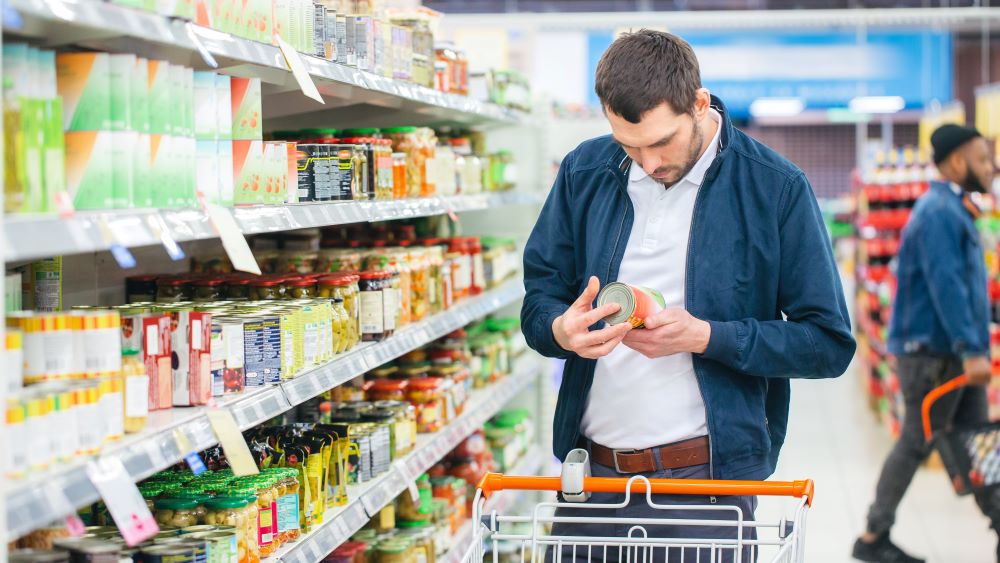
The government has postponed plans to enforce new labelling rules on EU food imports by more than a year due to concerns about costs for businesses and consumers.
The Department for Environment, Food & Rural Affairs (Defra) said new requirements for separate labels for products intended for Great Britain will now come into force on 1 January 2024.
In a briefing, Defra told Just Food that it was delaying import controls on EU goods entering Great Britain due to the supply chain impact of Russia’s invasion of Ukraine and the rise in energy costs.
Deadline extensions
It said: “In general, delaying these labelling requirements will mean that some labelling terms and EU addresses – in relation to the importer or FBO [Food Business Operator] address requirement – will continue to be permitted on the GB market for an additional 15 months.”
The deadline to use UK/EC identification marks in the GB market – needed for products of animal origin – has also been extended to 1 January 2024.
Post-Brexit labelling rules will affect a wide range of food products coming into the country from the EU, including meat, vegetables and oils.
EU producers will have to have a UK-based vendor or importer address on the label.
Relaxing label laws
Industry bodies have been calling for a relaxation of labelling laws for months, particularly following the effects the Ukraine war on the wider supply chain, reports the Grocer.
Rupert Ashby, CEO of the British Frozen Food Federation (BFFF), called for Prime Minister Liz Truss to “act immediately to address the cost of production crisis being faced by UK manufacturers”.
He went on to say, “Our members have been hit with a triple whammy of rising costs for ingredients, packaging and transport, all of which are driving up production costs. These will have to be passed on to consumers if they are to stay in business. This will drive up the cost of the weekly shop, making feeding a family unaffordable for many people.”
Meat requirements
Following a formal agreement from both Welsh and Scottish governments, the changes will apply across the whole of the UK, Meat Management reports.
For beef, veal and minced meat placed on the GB market, a business can continue to refer to ‘EU’ or ‘non-EU’ when the label does not list each country of origin until 31st December 2023.
From 1st January 2024 ’UK’ or ‘non-UK’ must be used when the label does not list each country of origin.
Costly preparations
Drinks Business reports that the requirement for separate labels for wine bottles intended for the UK market, would have cost importers and wine merchant tens of thousands of pounds, particularly affecting those trading in small quantities.
Miles Beale, chief executive of the Wine & Spirit Trade Association (WSTA), said that many businesses had made costly preparations for the October date.
“We estimate an added cost of anywhere between 5p and 50p per label, depending on volumes, business models and degree of control over supply chain. But the key point is that, whatever costs have already been incurred, we still don’t know what the new regime will be. This means every business will incur future costs,” he said.
James Miles, managing director of wine marketplace, Liv-ex, said that the government should “use this delay as an opportunity to look at import labels not just on EU imports but across all our trade. It is important to understand that import labels are a costly non-tariff barrier. Any UK-centric labelling is a barrier to trade,” he added.
The government is set to publish more detailed guidance relating to these import controls in the coming weeks.
Food inflation
Soaring prices for milk, cheese and eggs has pushed food inflation to its highest level for 14 years, reports the BBC.
Although overall UK inflation eased for the first time in almost a year in August, slipping to 9.9%, food prices rose at their fastest since 2008, as the war in Ukraine continued to drive up prices.
The Bank of England has warned inflation could top 13% this year.


